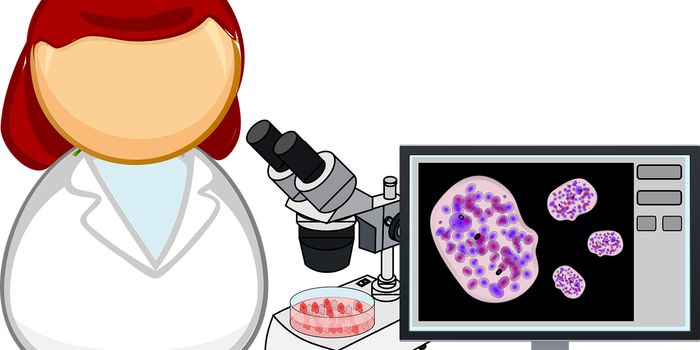Regulating Apoptosis in Prostate Cancer
Cancer treatments tend to work in one of a few ways. They can target the immune system, prevent cancer proliferation and metastasis, or induce a cell death pathway. Any of these alone can work against cancer, and some even work better in combination.
A team from the Virginia Common Wealth University wanted to investigate how a new finding in the FOXO1 apoptosis pathway, a cell death pathway, would affect prostate cancer. The FOXO proteins are a family of transcription factors responsible for regulating the expression of certain genes. FOXO1, in particular, controls several pro-apoptosis genes.
This new study built off of previous work that had identified an essential cell cycle regulator, PLK1, as a regulator of FOXO1. PLK1 phosphorylates FOXO1 and prevents its transportation into the nucleus. Without FOXO1 in the nucleus, the cells apoptotic pathways were silenced. It could even cause increased cancer growth.
The team wanted to see if these findings they saw before were the same in prostate cancer cells. They used FOXO1 mutants that mimicked the phosphorylated and unphosphorylated states to investigate. Like in their previous work, the phosphorylated mimic prevented expression FOXO1 pro-apoptotic genes, and the unphosphorylated mimic correctly localized to the nucleus.
They then wanted to test if they could inhibit PLK1 and prevent the phosphorylation of FOXO1. They used a PLK1 inhibitor in prostate cancer cells and found that it increased FOXO1 in the nucleus, and even induced FOXO1 apoptotic pathways. All signs of a potential anti-cancer drug.
The team then wanted to investigate if the PLK1 inhibitor might be able to work in combination with another anti-cancer drug, nocodazole. Both drugs caused adverse side effects in clinical trials, but together the team hoped they could reduce the dosage and still elicit a strong anti-cancer effect.
Using prostate cancer cells, they indeed saw a stronger anti-cancer effect with the combination treatment compared to either alone. They even saw signs that the combination did not elicit any harmful side effects when tested in healthy prostate cells.
This study identifies PLK1 inhibitors as potential anti-cancer drugs for prostate cancer. In combination with another compound, nocodazole, it could elicit even stronger anti-cancer activities with no apparent side effects.
The team concluded, “These findings shed light on a novel approach to reactivate apoptotic pathways in advanced PCa and support targeting PLK1-FOXO1 pathways as a novel therapeutic approach for treating advanced PCa.”
Sources: Nature Scientific Reports, Walter Jahn









